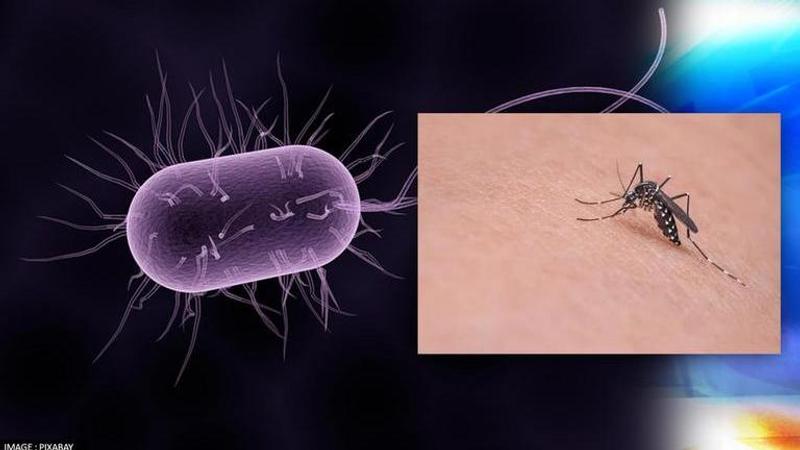Published 16:52 IST, October 5th 2021
Australian study finds bacteria effective against dengue-carrying mosquitoes
Dengue fever, yellow fever, Zika virus, and other viruses are being carried by the Aedes aegypti mosquito and found in tropical regions of over 120 nations

The latest revolutionary Australian study has discovered that bacteria might be able to utilise to eradicate the dengue-carrying mosquitoes. A group of researchers from the Commonwealth Scientific and Industrial Research Organization (CSIRO) has revealed in a study which was released on Tuesday that bacteria may effectively sterilise the disease-carrying Aedes aegypti mosquito.
The CSIRO along with the University of Queensland, Verily Life Sciences, QIMR Berghofer Medical Research Institute, as well as James Cook University collaborated for this experimental research.
In the year 2018, researchers had released nearly 3 million male mosquitoes which were sterilised with the Wolbachia bacteria across three Queensland trial sites over the period of 20 weeks. While, during the research when the female Aedes aegypti mosquitos mate with those sterilised males and later produced eggs, those eggs had failed to hatch.
The findings of CSIRO's mosquitoes study
The CSIRO discovered that mosquito populations in the testing locations fell by 80 to 97% within a year. Larry Marshall, chief executive of the CSIRO informed in a media release, “Over 40% of humans suffer from mosquito-spread diseases, so it's an opportunity for Australia to develop environmentally-friendly mosquito control tools to tackle current and future mosquito incursions," ANI reported.
The CSIRO further revealed that the method could also be used to eradicate the virus-carrying Asian tiger mosquito, Aedes albopictus, which has already entrenched itself on Australia's borders in the Torres Strait Islands.
Dengue fever, yellow fever, Zika virus, and other viruses are being carried by the Aedes aegypti mosquito. These mosquitoes may be found in tropical regions of over 120 nations and infect millions of individuals each year with the diseases.
Another Aedes aegypti mosquitoes study
Meanwhile, a few days ago, another group of researchers from the University of California (UC), San Diego reportedly found a modern approach for controlling Aedes aegypti mosquito populations which infect millions of people with deadly illnesses using improvements in CRISPR-based genetic engineering.
The novel precision-guided sterile insect method, or pgSIT, modifies genes that are related to male fertility which further resulting in sterile offspring and flightless females (resulting in sterile offspring) in Aedes aegypti, the mosquito species that spread diseases like dengue fever, chikungunya, and Zika virus, according to Science Daily.
The UC San Diego Biological Sciences Professor Omar Akbari, the pgSIT is a breakthrough scaled genetic control process that generates deployment of mosquitoes which can lower the populations using a CRISPR-based approach. As males do not spread illnesses, the argument goes, the population may be decreased without the use of harmful pesticides and insecticides by releasing more and more sterile males. As per Akbari, the planned pgSIT system may be implemented by supplying sterile male and flightless female eggs at specific sites where mosquito-borne disease is spreading.
(Image: Pixabay)
Updated 16:52 IST, October 5th 2021




